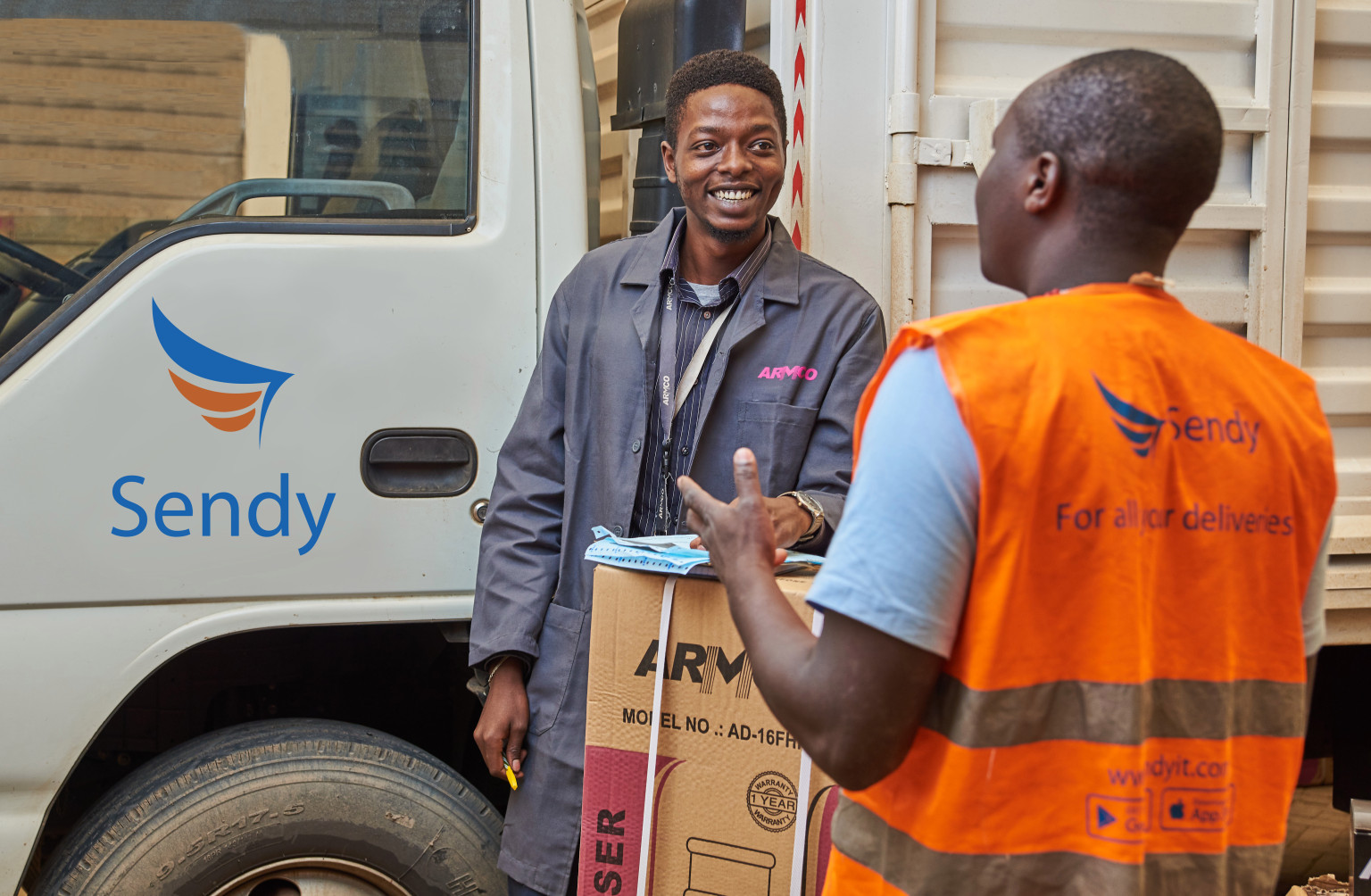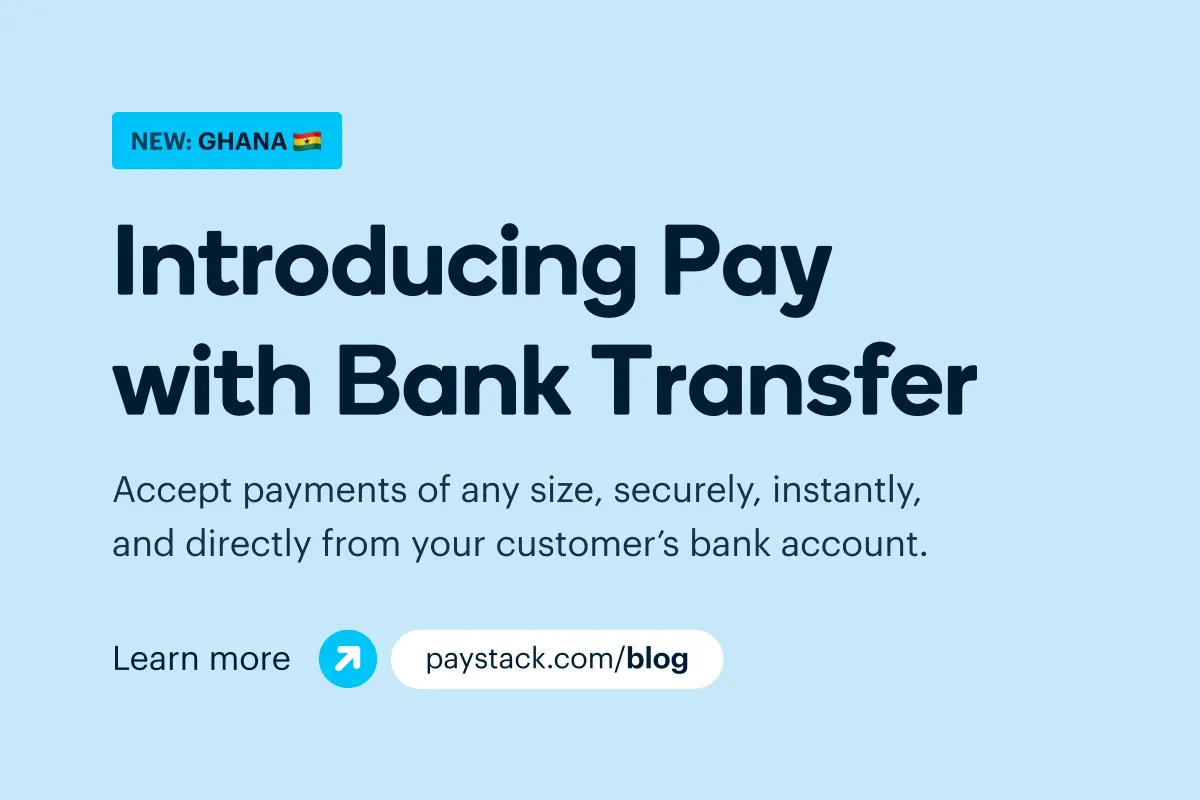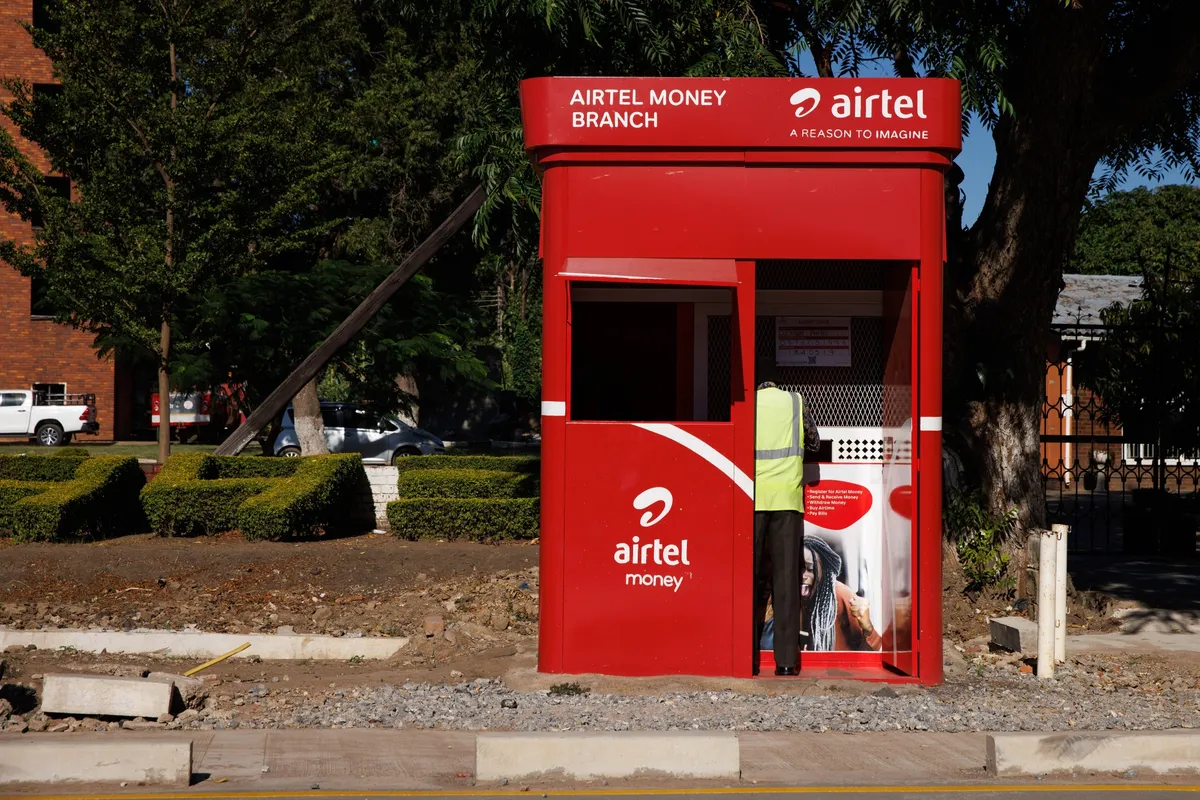👨🏿🚀TechCabal Daily – ‘Pay taxes, dead man’



Wazzup. 
Permit us to borrow one of those dramatic Marvel post-credit endnotes: Moonshot by TechCabal will return.
If you had a great time this year, prepare for double the energy, double the magic, and maybe double the good chaos next year. Get nestled on our waitlist early.
And if you’re a visionary brand already looking to partner, start speaking with our team: ads@bigcabal.com.
See you October 14 & 15, 2026.

Startups
Kenya says shuttered startup Sendy owes $635,000 in taxes

If the living complain about taxes, who then will tell the “dead” to cry foul? Nobody. So, they have to take the barrage as it comes.
This is the case of Sendy, the Kenyan parcel delivery startup, which became insolvent in 2023. Despite being inactive for two years, a Kenyan High Court ruled that the startup owes up to $635,000 in backdated value-added taxes (VATs) and must pay.
How did Sendy end up with such debt? The court found that Sendy operated not only as a digital intermediary, but also as a service provider that controlled key aspects of its delivery process. The court said Sendy received payments in its own name and set the terms of service, which made it liable for VAT on the entire transaction amount.
Between the lines: The decision overturned an earlier tribunal ruling and could expose other platform companies like Uber, Bolt, Glovo, Little Cab, and Jumia to similar treatment. Kenya’s growing appetite for taxing the digital economy is now testing how far regulators can go in treating tech platforms as full-fledged service providers rather than neutral intermediaries.
With the Kenya Revenue Authority (KRA), the country’s taxman, tightening its interpretation of VATs, platforms that manage transactions, customer data, and logistics could soon face the same scrutiny as Sendy, forcing global firms to either comply or retreat.
Zoom out: The big question now is whether the KRA can actually collect the taxes from Sendy, with the startup already in administration. Any attempt at recovery may depend on unsold assets or proceeds from its technology sales—if it still has cash left. It leaves a poser: who foots the $635,000 tax gap? Sendy’s administrators, investors, co-founders, or what’s left of the brand?
eCommerce Without Borders: Get Paid Faster Worldwide
Whether you sell in Lagos or Nairobi, customers want local ways to pay. Let shoppers check out in their local currency, using cards, bank transfers, or mobile money. Set up seamless payments for your global online store with Fincra today.
Banking
Standard Chartered sells its Ugandan banking segment to Absa Bank
A merger here, an acquisition there, and Africa is knee-deep in a busy banking season. We’re not sure if the recapitalisation exercises going on in several markets are opening up these opportunities, or if Q4 is just hunting season for these money-spinners.
Standard Chartered Uganda, the subsidiary of the UK banking conglomerate, has sold its wealth and retail banking (WRB) business to Absa Bank Uganda, the subsidiary of South Africa’s third-largest bank. If you’re wondering, that’s the division handling customer-facing services such as personal accounts, loans, and SME banking.
Between the lines: Following its 2024 announcement, Standard Chartered wants to focus on serving corporate clients—large corporations, development, organisations, governments, banks, and cross-border trade investors—in Uganda, keeping its corporate and investment banking business across key markets where it is seeing stronger returns.
This doesn’t mark an exit for the bank. Standard Chartered is staying put in Uganda, but the lender is also expected to sell its wealth and retail banking businesses in Zambia and Botswana.
Why is Standard Chartered trimming its WRB businesses in Africa? Globally, the bank’s Wealth and Retail Banking (WRB) segment generated $7.8 billion in operating income in 2024, compared with $11.8 billion from Corporate and Investment Banking (CIB), according to its annual report. Africa’s retail operations contributed only a fraction of that total, making the refocus on corporate clients a straightforward profitability call.
Zoom out: Beyond profitability, Standard Chartered has not given a deeper reason for trimming its businesses. Yet, for a continent where financial inclusion for consumers has been a headline topic, it seems businesses are the bigger fish in the pond. Standard Chartered and Absa will finalise the deal to ensure a smooth transition.
Paga is in USA
Paga is live in the U.S.! Whether you’re in Lagos or Atlanta, manage your money effortlessly. Send, Pay, and Bank in both Naira and US Dollars, all with Paga. Learn more.
Cybersecurity
M-Tiba faces what could be Kenya’s biggest medical data breach yet
If you use M-Tiba, the Safaricom-backed digital health wallet, you may need to take a seat for this one.
M-Tiba, the wallet used by millions of Kenyans to save and pay for healthcare, is at the centre of what could be one of the country’s biggest medical data breaches yet.
Catch up: Kazu, a self-described hacker group, says it accessed M-Tiba’s servers and walked away with more than 17 million files, about 2.15 terabytes of data. The group even released a 2GB sample online to prove they were not bluffing. The sample alone contained information for about 114,000 people across clinics and pharmacies. Kazu is suggesting the real number could be in the millions.
It gets worse: Inside that sample were patient names, national IDs, phone contacts, dates of birth, and in some cases, medical diagnoses and billing details—the kind of information meant to be locked in a digital dungeon with three padlocks and one bouncer.
What does Kazu want with medical records? Extortion. When customer records are stolen, it is typically to enable the malicious group to extort the company involved. But CarePay is not having it.
Sherlock Holmes CarePay: M-Tiba’s operator, Kenyan healthtech CarePay, hasn’t confirmed the leak but has requested copies of the alleged files to verify what’s circulating. The Office of the Data Protection Commissioner (ODPC) is aware of the situation but is staying quiet while the case is active.
Zoom out: The incident points to the fragility of Kenya’s cyber defences despite its rapid digitisation.
Pay with Bank Transfer is now live in Paystack Ghana!
Ghanaian businesses can now accept secure, instant bank transfers on Paystack. Learn more here →
Mobile Money
Airtel Money is now moving almost $200 billion a year
Airtel Money, the mobile money service of Airtel Africa, is growing rapidly. The total value of transactions passing through its platform has risen to over $193 billion a year, with its customer base expanding to nearly 50 million people across 14 African countries. This strong growth is driving the company’s plan to become a publicly listed company in 2026.
Does this mean a new fintech giant in Africa? This growth means Airtel Money is now one of the top three mobile money providers in Africa, alongside giants like M-Pesa and MTN Mobile Money. It has become a major competitor, especially in countries like Kenya, where it has rapidly gained market share.
The success is driven by signing up hundreds of thousands of new agents and more customers using smartphones, meaning more and larger transactions. Airtel Money is no longer just a side business for a telecom company; it has become a powerful fintech leader in its own right.
What next? The big next step is an Initial Public Offering (IPO), where Airtel Money will sell its shares to the public for the first time. This is planned for H1 2026. This move could value Airtel Africa at over $4 billion, making it one of the biggest fintech stock market listings ever in Africa—if it’s listed on an African bourse. The money raised will be used to expand its services further into areas like digital banking and lending, to compete even more strongly across the continent.
PalmPay is Showing Nigerians the Smarter Way to Bank
Got goals? Let’s make them happen. With PalmPay Fixed Savings, you can stay disciplined, save to pay your rent, school fees or scale your business while you earn up to 20% when you hit your target. Smart saving that moves with your ambition. Learn more.
HOT TAKE
“No more fintechs.”
There’s too much focus on building solutions for the middle class. That focus completely excludes people who haven’t even started participating in the digital economy. If we keep doing that, the gap will only widen.
A more meaningful way to think about it is to build tech solutions that are market-creating, that allow people to participate in the economy. If we keep building 100 products for the small middle class, exclusion will persist. Even in fintech, we should be thinking in a deeply native way, creating tools that fit local realities.
What Moniepoint is doing now is incredible, but we need more solutions like that across health and especially education. If you build something truly useful—something that solves a real, present problem—it will be far more valuable than doing what everyone else is doing just for the buck.
—Tunde Onakoya, Founder, Chess in Slums
CRYPTO TRACKER
The World Wide Web3
Source:

|
Coin Name |
Current Value |
Day |
Month |
|---|---|---|---|
| $113,105 |
– 0.82% |
+ 1.29% |
|
| $4,022 |
– 1.51% |
– 2.01% |
|
| $7.66 |
+ 10.99% |
+ 0.06% |
|
| $195.17 |
– 2.44% |
– 6.63% |
* Data as of 06.35 AM WAT, October 29, 2025.
Opportunities
- Bigger, bolder, and more intentional. Following the resounding success of the inaugural summit in 2024, Growth Padi is thrilled to announce Growth Africa Summit 2025 (GAS 2.0) with the trailblazing theme: “Redefining the Growth Playbook.” Set against the backdrop of a fast-evolving entrepreneurial landscape, this year’s summit will challenge outdated strategies and usher in a new wave of radical, resilient, and relevant growth models tailored for African businesses. Register to attend by November 1.
- Every startup has a story worth hearing. My Startup in 60 Seconds by TechCabal offers founders a one-minute spotlight to share their vision, challenges, and achievements. Beyond visibility, it connects you to investors, customers, and Africa’s tech ecosystem. Apply to be featured or explore other TechCabal advertorial opportunities. This is a paid opportunity.

- Nigeria moves to create single powerful regulator for fintechs with proposed bill
- The BackEnd: How this Kenyan healthtech is tuning corner pharmacies into a connected health network
- AI of a thousand faces
- African banking giants zero in on Kenya as capital rules spark acquisition rush
- Nvidia and Nokia set sights on 6G
- iOCO is mulling acquisitions as its turnaround bears fruit
Written by: Opeyemi Kareem, Emmanuel Nwosu, and Zia
Edited by: Emmanuel Nwosu & Ganiu Oloruntade
Want more of TechCabal?
Sign up for our insightful newsletters on the business and economy of tech in Africa.
- The Next Wave: futuristic analysis of the business of tech in Africa.
- TC Scoops: breaking news from TechCabal
- TNW: Francophone Africa: insider insights and analysis of Francophone’s tech ecosystem
P:S If you’re often missing TC Daily in your inbox, check your Promotions folder and move any edition of TC Daily from “Promotions” to your “Main” or “Primary” folder and TC Daily will always come to you.




















Leave a Reply